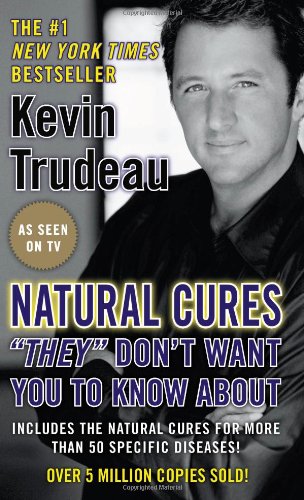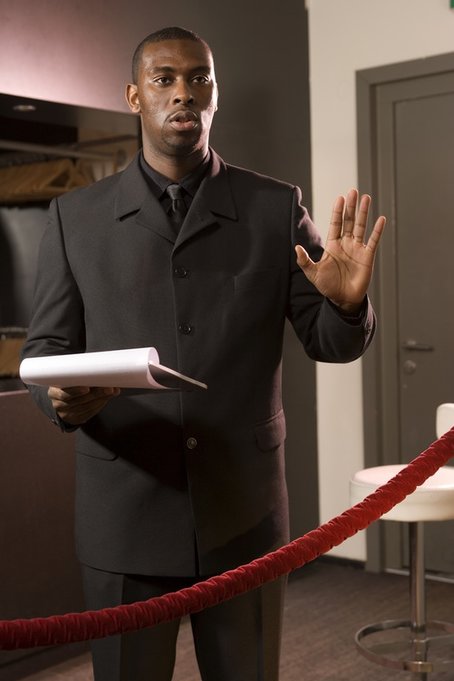We live in the Information Age–where everyone around us has information that they got from other sources of information, who are trying to manipulate information so that they can benefit from the proliferation of their version of what is “information.”
It sucks ass, dude.
It used to be that there were three TV news anchors that were on every night for a half hour, and they delivered the news. The exclusivity of this made us revere newsmen. They didn’t often veer from each other on facts, so it was easy to think, “Well if Tom Brokaw said it, it’s definitely true. So I guess that’s what reality is. Noted. Good night, honey.”
Those days are long gone. News today comes at you from ten trillion different angles. There are 24-hour news channels, a billion news sites, alternative news sites, fake news sites, independent Twitter sleuths, experts from all over, and a massive swath of other people who aren’t experts, but are really good at yelling.
Nobody who is trying to be objective truly knows who to believe. It feels as though every syllable written or uttered has been in some way manipulated to fit a narrative. Even completely fact-based reporting can still leave out necessary facts, have a wonky source, or arrange the facts in a way that leads you straight into Dumbass City.
Ignorance is Certainty
A lot of people have no concept of this, and damn. Those lucky motherfuckers. They get to live in a magical land where everyone is biased except their site of choice (the very reputable ShitOldPeopleLiketoHear.com), where everything they hear is true, and where they should be afraid and angry about exactly what they’re told to be afraid and angry about.
They don’t have to figure this shit out themselves. They just have an IV of opinions and information mainlined into their dumb brains. And while this information can be scary or infuriating at times, they at least get to have a clear vision of reality.
When you have a clear vision of reality, you can at least then you can settle into a worldview, and an idea in your head of how to fix the problem you’re told we have. At least then you can comfortably delude yourself into thinking, “Well if I just take this concentrated wheatgrass I’ll never get cancer, if I just bury gold in my back yard, the government can’t steal from me, and if we just get rid of the brown people, I won’t need to go to sleep spooning my Remington every night.”
Ignorance may not exactly be bliss for these people, but at least they get the delusion that they can see a solution to our problems. At least it’s not the torture of not knowing. Relative to what the rest of us have to go through, it’s really nice being a dipshit simpleton.
The Problem of Awareness
The rest of us are in the unfortunate condition where we’re aware of the inherent biases and fucked up murky waters of the information age. We get that anyone can post anything online, and that therefore everyone must question everything. We get that supposed experts say “X, Y, and Z will definitely happen” all the time, and that they’re constantly fucking wrong. We understand how information is used–by everyone from independent bloggers to multinational corporations to politicians themselves–as a weapon, which fucks up its ability to be a resource.
We get all of that, and it makes everything way worse.
Instead of getting some kind of information and using it to better our lives and the world, we’re in the middle of our own movies, spinning around in circles as voices clamor in from a million different angles, and our end action is inevitably to throw our hands up, and say, “Fuck man. I don’t know!”
It’s like we’re trapped in this massive spiderweb of deception and bullshit, and nobody knows how the hell to get out of it, so most of us are deciding, “Well, I guess I’ll just get eaten by a spider.”
But maybe we can at least try to avoid this. Maybe we can’t always figure out what’s right and what’s not, but maybe we can at least not fucking die in this web. Maybe we could use some kind of help in trying to put all of this shit together into something we can try to call trustworthy information. Maybe we can find some tricks to adapt to a post-fact era.
Maybe we can’t get out of the web, but we can at least kick the spider in the face a few times and get it to go eat some other idiot.
Here are some ideas on how to do that.
1. Listen to Science
Listening to science is a lot more complicated than it would seem for the same reason taking in all information is so complicated now. News stories described as “scientific findings” are susceptible to the same spin, clickbait, and being read by Nancy Grace as everything else.
Scientifically literate people will tell you how horrendously science can be misrepresented by a headline, how ridiculously cherrypicked findings can mislead the reader, or how fully debunked and discredited studies are hailed as the next big breakthrough–all because the people reporting on science are, scientifically speaking, dipshits who desperately need you to look at them (which to be fair, so am I).
The result of this is that science has been sucked into a post-truth vortex where established facts are whittled down by clickbait sites until they become “beliefs.” Suddenly, because of the proliferation of garbage science, things like medicine, the state of the climate, and even whether or not the earth is a fucking sphere are now to be debated as differing “beliefs.”
We’re a half step away from, “Well it’s my personal belief that gravity is a hoax by the government, and I’ve read plenty of articles confirming this, so I’d appreciate it if you’d tolerate my beliefs.”
And as the people watching and reading, shit. We don’t know what journals are reputable, which headlines are misleading, and which studies are made up by people who think the New England Journal of Medicine is a demon that lives inside of their brains.
So fuck! What do we do?
The only way to credibly understand what science has discovered is to trust in scientists. We do this because have you ever tried to read a study before? Like not an article summarizing a study–but an actual, academic, produced study? It’s just about impossible. I’ll give you an example.
Here is an abstract of a study about alternative causes to lactic acidosis. See how many words in you can make it before you bail and skip to the paragraph below. I made it like 30 words in. Pretty proud of myself.
“Lactic acidosis is a common metabolic acidosis characterized by increased serum lactate and is usually associated with a decreased blood pH. Lactic acidosis has many different causes but has been differentiated into type A, hypoxic causes, and type B, non-hypoxic causes. Tissue hypoxia, type A, is the most common cause, usually secondary to processes such as sepsis and multi-organ failure. Type A must be differentiated from type B in the correct clinical setting as treatments are vastly different. Type B causes may include drug side-effects, toxins, enzymatic defects, inherited or acquired, any of which may lead to overproduction or underutilization of lactate. However, as most clinicians are more familiar, and likely more initially concerned with hypoxic etiologies, evaluation is directed toward finding the source of hypoperfusion or hypoxia, and thus generally leading to a delay in discovering a type B cause (or mixed type A and type B). Here we describe a case of lactic acidosis in the setting of thiamine deficiency thought to be secondary to advanced lung cancer. The purpose of this paper is to bring awareness to the clinician to consider other causes of lactic acidosis when evaluating a patient.”
WHAT THE FUCK DOES ANY OF THAT SAY?
I have no idea. All I know is that Elite Daily will take a wild guess and somehow spin it into some clickbait horseshit like, “Science Says Drinking Milk Gives You Butt Cancer.”
So that’s why we listen to scientists. They’re the only people who can read that–the study itself–and obtain actual information.
But let’s be clear about what trusting in scientists means. This does not mean trusting a scientist. A scientist could be a fucking asshole. A scientist could bought by anyone. A scientist could be the one scientist who believes that ducks can travel through time, and that the Earth is suffering from a lack of dog porn. So this does not mean treating somebody’s word as gospel because he or she has a degree. There are plenty of fuck-up scientists out there, and one guy with a blog is not to be trusted (uh, uh, except me, of course!).
This means trusting a scientific consensus. It means finding whatever information you can about how the majority of the scientific community feels about something (not assuming three quack scientist blogs make a consensus), and then verifying it (so you can ensure that when I tell you 92% of scientists believe farts are an ancient myth perpetrated by the Japanese, that I’m not just making shit up).
(More on how to verify in number 3.)
2. Don’t Listen to People Who Tell You Not to Listen to Everyone Else
The other side of the coin of trusting experts is this equally crucial rule of thumb:
Never trust anyone who says everybody else is wrong.
I wasn’t planning on having one guy dominate this whole section, but there’s one guy I know of who so perfectly fits what I’m talking about, so here we go.
You may remember him if you’re in your mid-20’s or older and were also a weird child without cable, and therefore prone to watching late night infomercials like I was. I’m talking about this guy.
There is no one on this planet more full of shit than the guy who says something like this. This is a classic dickbag marketing tactic.
“Everybody else uses toilet paper to wipe their ass. That’s the mainstream way of ass-wiping. Big toilet paper doesn’t want you to know about Pine Cone Wipes–the toilet wipes made of pine cones. Don’t believe Charmin’s lies. Pine Cone Wipes are all natural. You won’t be wiping any GMOs on your ass, and only really smart people know about them. Here’s Gwyneth Paltrow with more.”
Don’t be dumb. Don’t listen to assholes like this or your dumb alternative news site just because they try to make you feel smart for listening to them and not “the media.” You’re not smart for doing that. You’re just being easily led into a ditch full of burning planets, fake conspiracies, and babies with small pox.
Follow real journalists who have consequences for misreporting. Follow people who actually know (and aren’t convicted fraudsters). Follow consensus.
3. Verify Everything
This is a tough habit to break. It’s just so easy to read something and then to let it fall into your brain as a fact, even if you’re telling yourself that you don’t really know it.
Fight this dragon at every turn. Check on everything. Be your brain’s night club bouncer. Every time a new fact attempts to enter your brain without verification, treat it like it’s a group of bros out for a night of dryhumping to EDM, and tell the thought to fuck off.
Your options for verification include:
1) If the fact in question is a study, ask someone you know personally and trust who is scientifically literate to confirm its validity (and preferably someone who has already read the study, so that you don’t give them homework like an asshole).
2) Find places on the internet where real experts with degrees gather (message boards and the like), and see if you can glean a consensus.
3) In accordance with not listening to the Kevin Trudeaus of the world, if the site you’re reading is the only one reporting on it (or if there’s only one niche of sites reporting it) then get off of your stupid clickbait site, and get somewhere slightly less terrible. That place verifies nothing. You didn’t find the one place telling the truth. You found a very specific lie that they knew you’d click on. You got played.
Do these methods of verification sound like too much work? Tough shit. We have a Godzilla-like monster of ignorance invading our lives. Yelling, “Ignorance!” in an offensive Japanese accent and running away isn’t going to solve anything. You have to try to fight it.
Regardless of what happens–but especially if you ignore this step, then you must…
4. Try this Thought Experiment
Give this a try. Choose any one of the following topics:
1) US interventionism
2) Sound government economic practices
3) The exact, quantifiable impact Russia had on our elections
4) The healthiest diet for humans.
5) The likelihood of nuclear war
Choose one of those topics, and think about it for a second. Try to figure out how you feel about it. Then say this sentence.
“I don’t have an opinion on that.”
I know it will be difficult. I know it will feel like pulling teeth. I know you’ll feel an uncontrollable urge to blurt out, “THIS IS HOW TO EFFECTIVELY GOVERN,” but try to stop yourself. Instead, force yourself to acknowledge your lack of knowledge. Fully face what you don’t, and often can’t know. Feel the relief that comes from letting go of the idea that you need an opinion on everything.
It’s a given that you know nothing about anything, and to some degree, that will always be true. This is important to recognize, because people passing on information they don’t know is how the spiral of bullshit continues. The only way to slow the spiral is to stop spinning it yourself.
Those who know they know nothing may not know much, but they at least know that. And that’s one more thing than your stupid uncle who thinks he wins Facebook arguments by calling the other person a snowflake.
5. Remember: Your Anxiety is Highly Profitable
Look, there’s plenty to be actually worried about in the world. But it’s also worth remembering over and over again that you being worried is very good for people who you watch when you’re worried, and the people who make products you buy when you’re worried–and that’s a whole lot of fucking people.
Good news doesn’t keep you watching. Good news will cause you to watch for five minutes, and then fall into a glorious, worry-free slumber of beautiful white clouds, puppies, and rainbows.
And that’s worth shit to CNN’s sponsors.
The best model for profitable news is this:
1) Make the viewers piss themselves in fear with a previously unknown.
2) Hint at a solution to the problem later in the program.
3) Advertise for a laundry detergent that gets out pee.
4) Make the viewers shit themselves in anger.
5) Advertise a sale on pants.
There are things that legitimately should piss you off, or frighten you, but every time you start to feel this way when taking in news, do yourself a favor. Step back, look around, think for a second, and say, “Wait, is this totally stupid?” Look around and ask yourself:
1) If this story is reliable.
2) If this story is actually really that bad.
3) If this story really applies to anyone you know or care about.
4) If this story is part of a repeating, common pattern that is a part of the world’s fabric, or if it’s just some shit that happened.
Which brings me to my last tip to surviving the web of bullshit.
6. Trust Stats, Not Stories
We have a tendency to lose our shit at a cell phone video, or a leaked transcript by one person in power, or the actions of one guy wagging his dick at traffic. We assume a pattern as soon as we see something more than once (or sometimes less) in a world of 7.5 billion people.
We’ll read one story about a parent letting his toddler play in traffic, and we’ll think, “Is this what the world is coming to? Parents are letting their kids play in traffic? What is wrong with society?”
The world is coming to nothing. Parents aren’t doing that. Parent did. Some asshole did. It’s not a trend, it’s one dumbass. You’ve learned nothing about anything from this.
You’ll see this terrible reasoning when your friend visits Chicago for a few days. They meet five locals, three of them are assholes, and so they conclude, “People from Chicago are assholes. I know this, for I met three out of the nearly 10,000,000 people, and that is a rational sample size and I am in no way being a fucking idiot.”
It’s human nature to simplify and draw conclusions like this. It’s also a prime example of how human nature sucks, and we need to kick its ass.
So here’s a rule of thumb: When it comes to gathering information and drawing conclusions about the world, fuck every found video, every individual story, and every loud asshole pretending to speak for everyone. Every time you ever observe a trend, keep in mind your “observations” are actually worth absolute shit.
Instead, look at statistics.
For example, forget about mass shootings. Base your anti-gun argument around actual gun violence stats. Forget about the story about one kid getting kidnapped and murdered in your state. Look into the actual likelihood of that happening to your kid, and chill. Forget about the one guy who went to Colombia, got drugged, and came back accidentally smuggling a bag full of coke in his asshole. That, like, probably won’t happen to you.
Don’t assume patterns in the world. Verify them. See what actually happens a lot according to data, and not just the teensy sliver of reality you see your with your own dumb eyes.
These ideas won’t solve everything, but hopefully they will fight your complacency. We may still not know who to trust, but at least you have a better idea of how to be skeptical, and who to definitely point to and say, “Nah, fuck that guy.”
But yes, okay fine. You are still stuck in this web of bullshit. We all are. And it sucks. Sorry I couldn’t get you all the way out. But damn it, this is a start.
So please, consider making some progress on what you think you know. Fight back against this fucked up mutation of the information age. Free up that leg, and kick that spider in the face.














